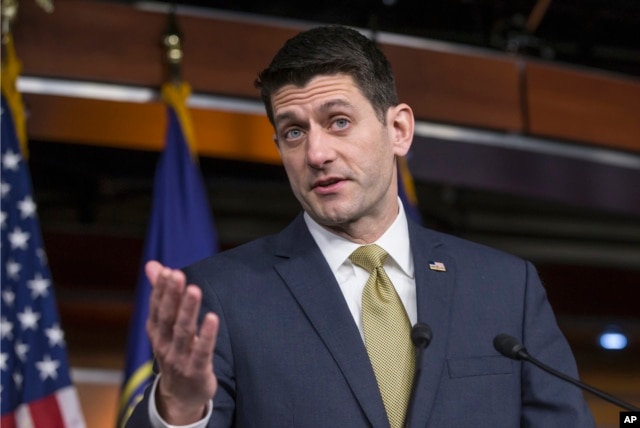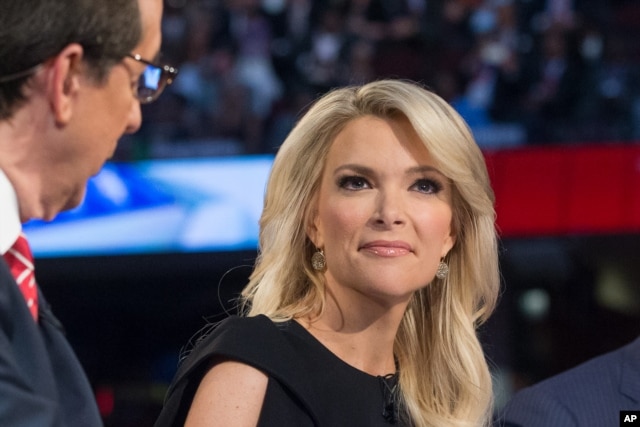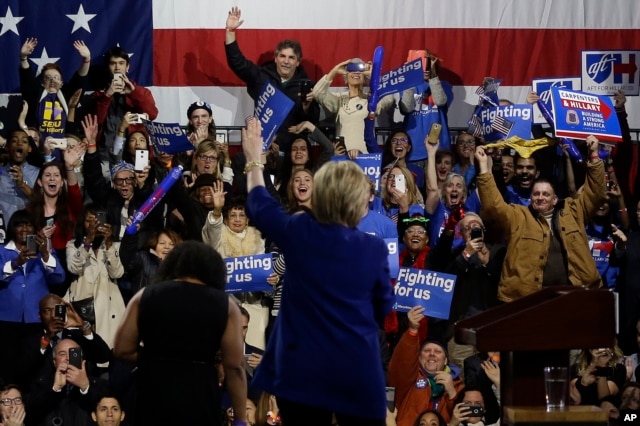Romney Casts Trump as Dangerous; Trump Calls Romney Irrelevant

Romney made clear that he, himself, is not planning to run and called on voters to consider any of the four remaining Republican candidates, cautioning that: «A person so untrustworthy and dishonest as [Democratic candidate] Hillary Clinton must not become president.» But the former Massachusetts governor said Trump has neither the temperament nor the judgment to be president.
Romney blasted Trump for his many failed businesses and for his foreign policy statements. He summed up Trump’s views on Syria and the Islamic State terrorist group like this: «‘Let ISIS take out Assad,’ he said, ‘and we can pick up the remnants.’»
Romney continued, “Now think about that. Let the most dangerous terror organization the world has ever known take over an entire country? This recklessness is recklessness in the extreme.”
‘A phony, a fraud’
Denouncing Trump as «a phony» and «a fraud,» Romney said Trump’s «promises are as worthless as a degree from Trump University» — a reference to a Trump business enterprise that is under investigation for fraud in New York.
Romney, who ran unsuccessfully against President Barack Obama four years ago, spoke Thursday in Salt Lake City, Utah, at the University of Utah’s Hinckley Institute of Politics Forum.
His increasing jabs at Trump in recent days include sharp criticism of the party front-runner’s refusal to release his tax returns and his initial reluctance to disavow an endorsement from a former leader of the Ku Klux Klan, a white supremacist group.
Romney’s attacks on Trump contrast markedly with the two men’s relationship in 2012, when billionaire real-estate mogul Trump championed Romney, who in turn praised Trump’s business expertise.
Trump hits back
Speaking in Maine, Trump slammed Romney, calling him «irrelevant» and a «failed candidate» who let the Republican Party down when running against Obama.
During a rambling, 45-minute speech at a campaign rally in Portland, Trump called Romney’s remarks «nasty» and said he thought Romney was a better person. He said Romney had begged him for his endorsement in 2012. Trump cited some of his buildings across the world to counter charges by Romney that Trump is not as successful a businessman as he claims. But Trump did not counter the substance of any of the other scathing critiques of his knowledge, judgment and temperament.
Trump said his wife, Melania, called him and asked him to act «presidential» during Thursday night’s televised Republican debate. Trump said he would, but that he would also hit back harder if anyone hits him.
Growing Republican effort to stop Trump
Romney joins an increasing number of party leaders and influential donors who strongly oppose Trump’s candidacy.
They are critical of the one-time television reality show host’s controversial policies on trade, immigration and other issues, including Trump’s vow to deport 11 million illegal immigrants, temporarily bar Muslims from entering the United States and force Mexico to pay for and build a wall along its entire U.S. border.
Another former Republican presidential nominee, Arizona Senator John McCain, tweeted that he agreed with Romney and was especially concerned about national security under a possible Trump presidency.
Republican House Speaker Paul Ryan said Thursday that as speaker, he could not interfere in the nominating process. But he added that, when “someone disfigures conservatism,” he would speak out, as he has twice on Trump. Ryan said he does not know Trump personally, but would get to know him and would work with him if Trump becomes the nominee.
House Speaker Paul Ryan of Wisconsin talks to reporters on Capitol Hill in Washington, March 3, 2016. Ryan said he does not know Donald Trump personally, but would work with him if Trump becomes the party presidential nominee.
During his news conference after his Super Tuesday victory, Trump said he would most likely get along fine with Ryan, but said Ryan would “pay a big price” if they didn’t. When asked about Trump’s comments Thursday, Ryan said he “laughed out loud.”
Democratic House Minority leader Nancy Pelosi said House Republicans should not be acting shocked about Trump, because they also promote an anti-immigrant agenda. She said with all the attention paid to Trump and Republicans, people should not ignore that: “Hillary Clinton has gotten more votes than Donald Trump. Did you know that?”
After word of Romney’s speech was disclosed Wednesday, Trump mocked the former Massachusetts governor on social media, calling him «Failed Presidential Candidate Mitt Romney.»
Foreign policy veterans
Separately, a group of 60 Republican foreign policy veterans signed a joint letter opposing Trump, saying he would «act in ways that make America less safe, and which would diminish our standing in the world.» Signatories included former U.S. Homeland Security Secretary Michael Chertoff, former World Bank President and Deputy Secretary of State Robert Zoellick and former top Pentagon official Dov Zakheim.
FILE – Fox News moderators Megyn Kelly, right, listens as Chris Wallace beings introductions during the first Republican presidential debate at the Quicken Loans Arena, in Cleveland, Aug. 6, 2015.
Later Thursday, Trump will join Florida Senator Marco Rubio, Ohio Governor John Kasich and Texas Senator Ted Cruz at a debate in Detroit, Michigan. Republican presidential candidate Ben Carson will not take part in the debate in his hometown.
While not formally dropping out of the race, Carson issued a statement Wednesday saying he sees «no path forward» to the nomination. It was not immediately clear when he would officially suspend his campaign.
The Republican debate, to be held at 9 p.m. EST (0200 UTC), is being hosted by Fox News, with moderators Bret Baier, Megyn Kelly and Chris Wallace.
Trump-Kelly faceoff
Thursday night’s debate is the first time Trump and Kelly will meet after thefirst Republican debate in August. Trump, who felt he was being grilled unfairly by Kelly, has made several disparaging remarks about Kelly in interviews and on social media.
He boycotted a second Fox-hosted debate in January, shortly before the Iowa caucuses, because Kelly was a moderator. Fox refused to remove her, as Trump had requested. The move was believed to have cost him votes and contributed to his second-place finish in the caucuses.
The Fox moderators told Reuters on Wednesday they do not plan to mention Trump’s comments about Kelly, his complaints about unfair treatment by the cable news network or his absence from Fox’s January debate.
As for Kelly, she said she has not prepared a comeback if Trump gets personal. «I have my questions,» she told Reuters. «That’s all I need.»
Democratic presidential candidate Hillary Clinton waves to supporters before speaking during a rally in New York on March 2, 2016.
What’s ahead
By March 15, a dozen more states and several territories hold primary elections or caucuses, providing a chance for trailing candidates to make up some ground, or leaders Trump and Democratic front-runner Clinton to strengthen their holds on the races.
A few of those contests take place Saturday and Sunday, but Democrats have a big primary next Tuesday in Michigan, a populous state that accounts for 148 delegates to the party’s national convention in July. Michigan accounts for more than 10 percent of the total delegate votes necessary to become the Democratic candidate for president in the November general election.
Former Secretary of State Clinton led her rival, Vermont Senator Bernie Sanders, 50 percent to 40 percent in a Feb. 18 survey of likely Michigan voters by Public Policy Polling. The two are scheduled to debate Sunday at 8 p.m. EST (0100 UTC Monday) in Flint, a city at the center of a drinking water contamination crisis.
For Republicans, primary votes in delegate-rich Ohio and Florida on March 15 could narrow the number of party candidates. Ohio has 66 delegates and Florida has 99, all going to the candidate finishing first — the so-called «winner-take-all» system, in contrast to other states that allocate delegates either proportionally or on some other basis.
Rubio and Kasich are under particular pressure to win their respective states’ contests; political analysts say their candidacies may not survive a home state loss. Both Kasich and Rubio have finished well behind Trump and Cruz in almost all of this year’s presidential preliminaries.
Mia Bush contributed to this story, some material was provided by AP.




